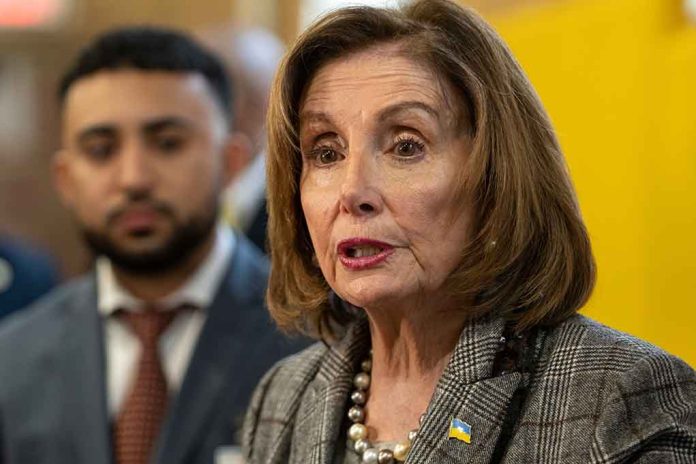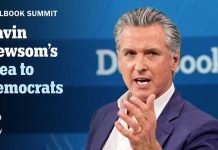
Nancy Pelosi claims Trump’s rhetoric led to her husband’s attack, criticizes potential pardons for January 6 defendants.
At a Glance
- Pelosi links Trump’s rhetoric to the 2022 attack on her husband and the January 6 riot
- She criticizes Trump’s consideration of pardons for some January 6 defendants
- Pelosi states her husband still suffers from injuries related to the 2022 attack
- She accuses Trump of misleading the public about the events of January 6
Pelosi Links Trump’s Rhetoric to Violence
In a recent appearance on CBS News’ “Face The Nation,” Representative Nancy Pelosi, a Democrat from California, made controversial claims about President elect Donald Trump’s rhetoric and its alleged connection to violent acts. Pelosi suggested that Trump’s language was responsible for the 2022 attack on her husband, Paul Pelosi, and linked it to the events of January 6, 2021.
During the interview with host Margaret Brennan, Pelosi expressed her concerns over the ongoing impact of what she perceives as Trump’s inflammatory language. She claimed that the effects of such rhetoric continue long after specific incidents occur, pointing to her husband’s persistent injuries as evidence.
🚨🇺🇸 PELOSI: JAN. 6 VIOLENCE “DIDN’T END THAT DAY”
Nancy Pelosi claims the fallout from the Capitol attack lingers, citing the assault on her husband while taking a swipe at Trump’s promise to pardon Jan. 6 rioters.
Critics, including Pelosi and some former Capitol Police… https://t.co/4bzkJr0NC3 pic.twitter.com/aua9ChFV4b
— Mario Nawfal (@MarioNawfal) January 6, 2025
Criticism of Potential Pardons
Pelosi also took aim at Trump’s statements regarding potential pardons for some individuals charged in connection with the January 6 attack on the U.S. Capitol. She questioned the morality and appropriateness of such actions, suggesting that it would be unusual for a president to pardon those involved in an attack on the government.
“It’s really a strange person who’s going to be President of the United States, who thinks that it’s okay to pardon people who were engaged in an attack.” – Nancy Pelosi
The former Speaker of the House emphasized the importance of accountability for those involved in the events of January 6. She argued that pardoning individuals who participated in what she described as an attack on democracy would send a dangerous message and potentially encourage future acts of violence.
Ongoing Impact of Violence
Pelosi stressed that the consequences of political violence extend far beyond the immediate aftermath of an incident. She pointed to her husband’s ongoing recovery as an example of the lasting effects such attacks can have on individuals and their families.
“Now it didn’t end that day, As you know, he called out to these people to continue their violence, my husband being a victim of all of that, and he still has injuries from that attack. So it just goes on and on. It isn’t something that happens and then it’s over. No, once you are attacked, you have consequences that continue.” – Nancy Pelosi
The representative’s comments highlight the complex and emotionally charged nature of discussions surrounding political rhetoric and its potential real-world consequences. As the nation continues to grapple with the aftermath of recent politically motivated violence, Pelosi’s statements underscore the ongoing debate about the responsibility of political leaders in shaping public discourse and behavior.
Sources:
- Nancy Pelosi Falsely Suggests Her Husband Was A ‘Victim’ Of Trump’s Rhetoric
- Nancy Pelosi Falsely Suggests Her Husband Was A ‘Victim’ Of Trump’s Rhetoric














